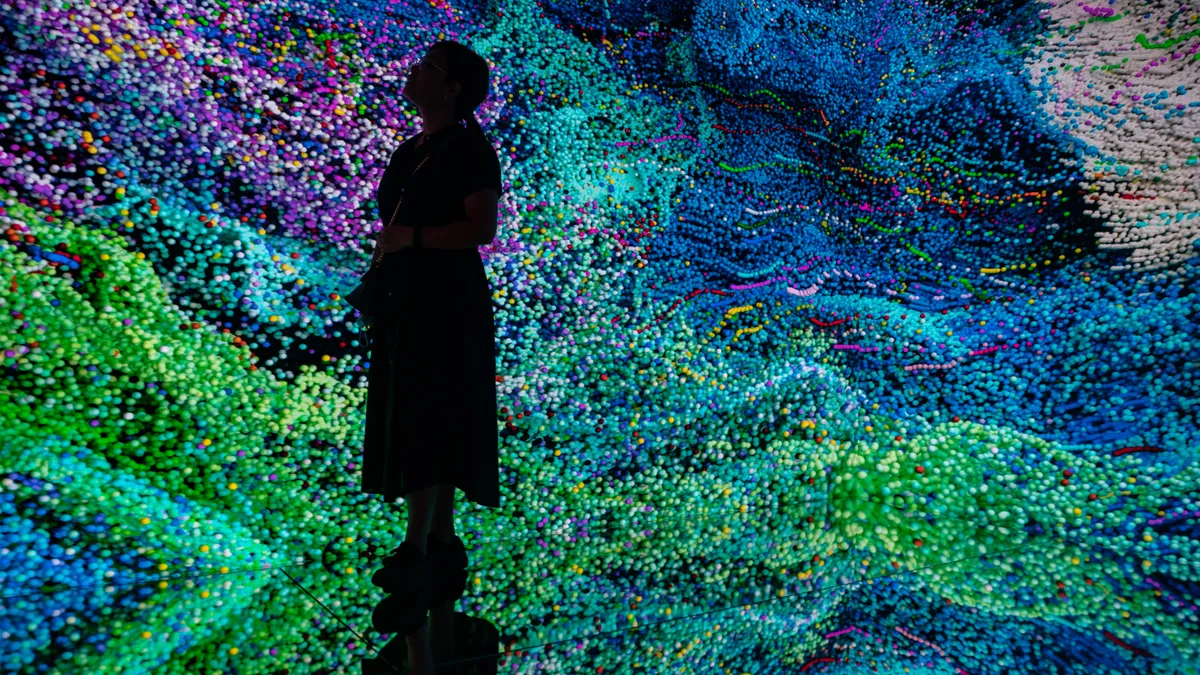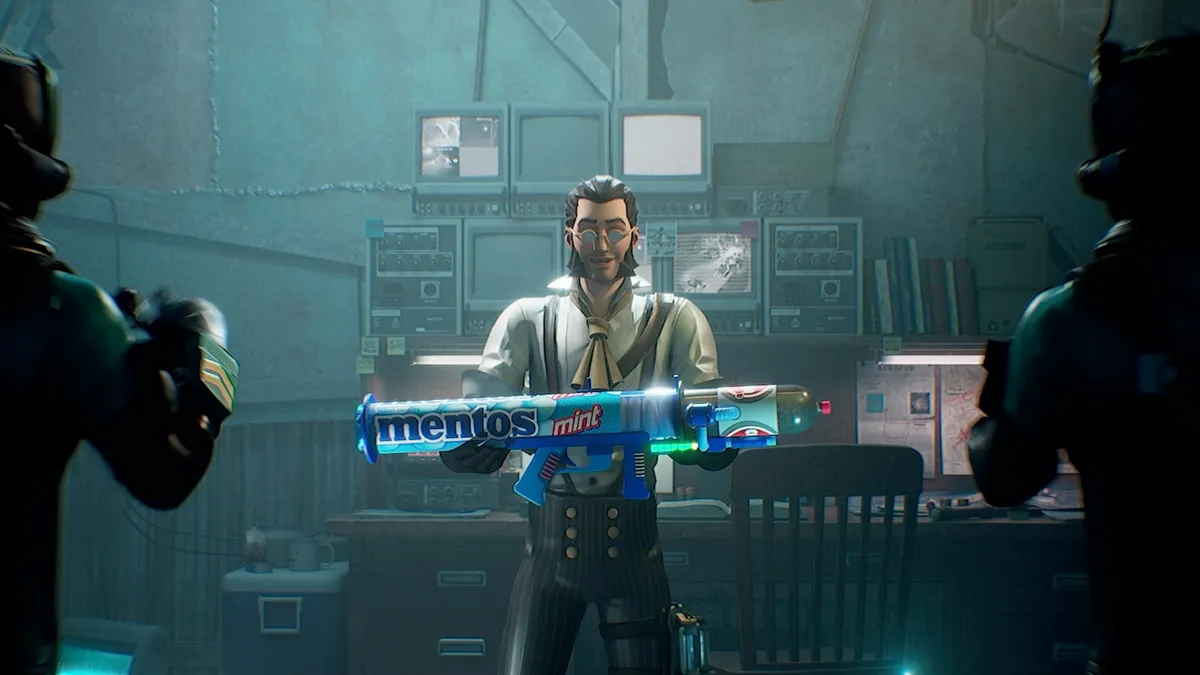Major marketers including Coca-Cola, McDonald's and P&G have planted their flags on the metaverse, with new activations rolling out at a pace similar to what in-person experiential saw before the pandemic. In turn, agencies of all sizes are launching dedicated teams and practices to cater to brand clients, even if consumer familiarity of the space remains low.
The number of agencies responding reflects how, in just a few months, the metaverse has gone from a term of speculative sci-fi to a ubiquitous concern of marketers and tech companies looking to tap into a market that could grow — according to particularly sunny estimates — to $800 billion or even more than $8 trillion.
Growing out of interest in the blockchain and non-fungible tokens (NFTs), the amalgamation of those technologies with larger worlds that bridge real and virtual ones is expected to eventually be a major part of consumer life, with Gartner predicting that a quarter of consumers will use the metaverse daily by 2026.
"People haven't really fully adapted yet, and who knows exactly when they will, but it's no longer an 'if' — it is a 'when' Web3 is coming," Michael Cohen, co-founder and CEO of creative agency Harper+Scott, said about the next, blockchain-based iteration of the internet.
Staffing up
Harper+Scott launched H+S Meta in January, one of several new entrants, like Deloitte's Unlimited Reality offering and the Unit9 Group's "Metaverse Advisory Dept.," that also includes early adopter VaynerNFT and efforts by Publicis. In one of the largest such offerings yet, WPP's Hogarth last week launched The Metaverse Foundry, a global team of more than 700 creatives that will be available to the holding company's agencies and clients globally. In all of these offerings, agencies are assembling teams with experience in digital marketing whose skills are well-suited for the new technological demands of the metaverse.
The Metaverse Foundry includes creatives, producers, visual artists, developers and technologists, and is investing in more diverse talent from the gaming world, spanning experience design, sound design, architects, AI specialists and more as it looks to operate more like a creative digital product design company — a wide remit that offers "limitless" creativity, according to Mehta Mehta, global executive creative director for Hogarth, who joined from S4 and Media.Monks in January.
"There are no rules or boundaries for customer interactions and it's on 24/7. We can design e-commerce connected experiences that can constantly change depending on the time, day of the week, season, and location; something we couldn't do with digital brand work of the past," Mehta said in emailed comments.
WPP agencies are already working on metaverse projects with Wendy's, Under Armour, Duracell, Pfizer, Pizza Hut and Bombay Sapphire, per details emailed to Marketing Dive, and the Metaverse Foundry will provide clients with experience design and production, virtual art, virtual stages, development of VR/AR applications, technology and R&D.
"Technology does not equal an experience, technology is a tool with which to create beautiful experiences."

Rosh Singh
Managing director for EMEA, UNIT9
Unit9's Metaverse Advisory Department (MAD) is built around an experience-design framework that helps define, explore, plan and activate on the metaverse, and brings together strategists, producers, creatives and Web3 experts. While approaching activations from the makers' perspective, both area expertise and knowledge of how to harness emerging technology to actually build something are both important — but only in service of real value.
"Technology does not equal an experience, technology is a tool with which to create beautiful experiences," Rosh Singh, managing director for EMEA at UNIT9, said in emailed comments.
H+S Meta, which grew out of Harper+Scott's focus on the design, production and distribution of physical branded merchandise, includes staffers that create everything from digital merchandise in Decentraland Marketplace to proof of attendance protocols (POAPs), a type of NFT that proves someone attended a virtual event. On the less technical side, the company is also looking to hire community managers.
"We're approaching this with all of our clients as this is not a cash grab — this shouldn't be seen as opening up a whole new revenue channel for you immediately," Cohen said. "This is about extending your community, bringing them together in Decentraland or on a Discord channel and using the community to expand upon your brand."
Educating clients and consumers
The lesson that the metaverse is not a cash grab is one of many that metaverse-focused practices must teach clients that are looking to jump on the bandwagon. At the core, activating on the metaverse is like activating on any other digital, social platform and requires understanding the brand's authentic entry point.
"For some brands the authentic entrance is to be a first mover and an innovator, which of course we absolutely love, but underneath these activations there needs to be a long-term plan, because activating in Roblox in 2022 is not a Metaverse strategy," Singh said.
Some brands recognize that it may be years before they activate publicly on the metaverse; they also need a strategy and internal road map that charts a course to the digital, 3D world, with a focus on education, the development of workflows and pipelines, and stakeholder management, per Singh.
Hogarth's Mehta encourages brands to start small, using existing activations to the connect to the metaverse with small, contained experiments. The Metaverse Foundry is working with WPP agencies and their clients to trigger metaverse experiences using existing TV commercials, products, print, social and AR elements to help bridge the divide between physical and digital worlds.
In this way, metaverse offerings will also be helping to educate consumers. While Wunderman Thompson Intelligence found that just 38% of global consumers were familiar with the metaverse in September 2021, that percentage has essentially flipped: now 65% have at least heard of it, per a February 2020 Gartner survey.
"This moment for the Metaverse is analogous to the pre-iPhone mobile era. There is a lot of excitement, but we haven't had the true cultural catalyst," Singh explained. "What is really interesting from the mobile era is the spawn of new business models as seen by Uber and Airbnb — truly understanding what your business model looks like in the metaverse era is much more important at this stage than a simple activation partnership with a gaming platform."























